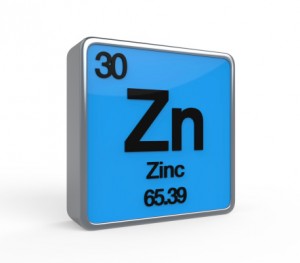Lose Weight > Common Sense To Lose Weight > Common Sense Article > Features Of A Good Weight Loss Supplement
Features Of A Good Weight Loss Supplement
Seen against such a background, it is not surprising that the search for weight loss help is such a great preoccupation today. There are people, and many people at that, who have been told by their doctors that they may not be alive in ten years time if they don't take urgent stops to lose weight.
Aware of the great need for weight-loss, entrepreneurs (some backed by quite experienced researchers) have been going to come up with the various weight loss supplements which are meant to make weight-loss easier.
Now to understand the place of a supplement in the weight loss effort, it would be worth mentioning that people looking for weight loss are typically advised that the only way they can do this is through dietary modifications and exercise. The problem with those two approaches to weight-loss, however, is that they tend to be painful steps (calling for the person using them to make some rather difficult choices). Additionally, diet and exercise don't deliver results instantly, and indeed, even with the most disciplined of dietary choices, backed by the most rigorous and well targeted of exercise regimes, it can often by up to a whole year before a person can start seeing worthwhile results in terms of weight loss. It is at this point that supplements enter into the picture: promising to not only hasten your weight loss, but also to make it less painful.
Anything promising fast and less painful weight-loss is likely to be highly attractive to the people who happen to be struggling with the weight problem, and the weight-loss supplements have been no exception. Indeed, the weight-loss industry is today thought to be worth billions. The problem, however, has been the emergence of scams (in the form of dud products) masquerading as weight loss supplements, leading to the question as to what makes a good weight-loss supplement.
So, what make such a good weight-loss supplement?
Well, for starters, a good weight-loss supplement has to be one that actually delivers what it promises in terms of weight loss help. We are talking about efficacy here, and the way to establish this is by, among other things, looking at what any supplement you are considering buying is made of, and what the experiences of previous users of it have been like.
A good weight-loss supplement also has to be safe, unless you are looking to get 'weight loss at any price' - in which case you would have no reason to care about side effects. Like efficacy, the way to gauge the safety of a weight-loss supplement would be to interrogate its ingredients (what they are, and what side effects they are known to have), in addition to listening to what the experiences of its past users have been like.
Related Articles
-
The Weight Loss Advice You Have Been Waiting To Receive
Losing weight is more than just improving your outer appearance.
-
You And How The Law Of Attraction Weight Loss Can Help
If you want a change in your life and don’t know how to go about
-
Never ignore these types of stomach pain
There are many reasons why our stomachs can cause us pain. Eati
-
Dieting Follow This Tip And You Will Gain Will Power To Follow Any Diet
This tip is not conventional, but it is guaranteed to help you follow
-
Drinking Soy Milk for Weight Loss: Does It Work?
Soy milk is the most popular non-dairy milk alternative. Made from nut
-
The Common Sense Approach To Fitness And Wellness
Common sense is not so common.VoltaireDo you ever wonder why people be
- DON'T MISS
- The Newest Simply Weight Loss Tips For Women Over 30 Years Old
- Lose Weight And Burn Fat Fast. Here Are Some Top Proven Methods To Lose Weight And Stay Lean
- Idiot Proof Diet-Weight Loss-online Diet Generator-Diet Hand Book-Dieting Tricks
- how to lose belly fat in one week
- How To Lose Weight and Quit Eating When You’re Bored
- Can The GI Diet Help You Lose Weight?
- Most effective Calorie Burning Diets
- Low Carb Diet Pills
- Weight Loss Starts with Questions
- 10 Tips For Long Term Weight Loss




